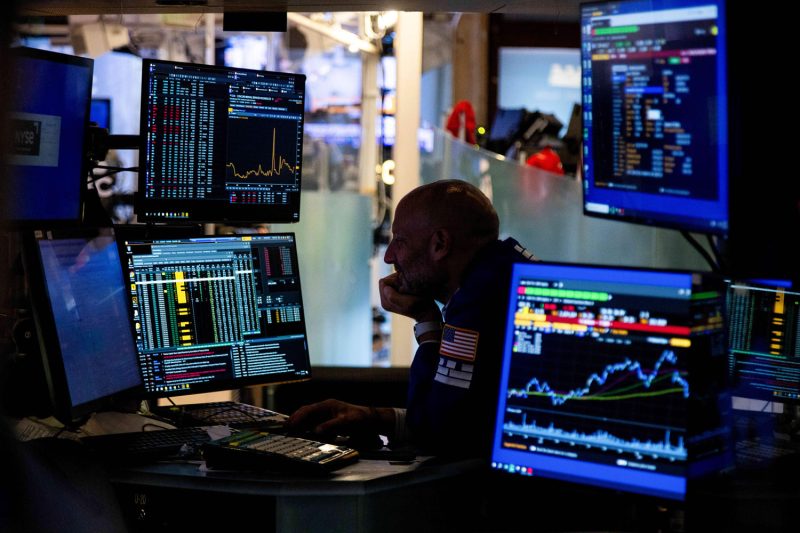The recent stock market volatility has once again demonstrated the fragility of investor confidence, with the Dow Jones Industrial Average closing nearly 500 points lower on Thursday. This significant drop was primarily fueled by growing fears of a potential recession, as economic indicators and global trade tensions continue to unsettle markets around the world.
Investors have been closely monitoring economic signals for months, searching for clues as to whether a recession might be on the horizon. The inverted yield curve, where short-term interest rates exceed long-term rates, has been a cause for concern as historically, this phenomenon has often preceded economic downturns. The ongoing trade dispute between the United States and China has added further uncertainty, as escalating tariffs have the potential to disrupt global supply chains and economic growth.
The Federal Reserve’s recent interest rate cuts, aimed at stimulating the economy and warding off recessionary pressures, have so far failed to assuage investor fears. While lower interest rates can encourage borrowing and spending, they also signal a lack of confidence in the economy’s prospects. Investors are questioning whether central banks have the necessary tools to combat a potential downturn, especially given the limited room for further rate cuts in the current low-interest rate environment.
In addition to macroeconomic factors, corporate earnings have also played a significant role in driving market volatility. Lackluster earnings reports from key sectors such as manufacturing and technology have underscored concerns about weakening global demand and the impact of trade tensions on corporate profitability. Companies reliant on international markets have been particularly vulnerable to the uncertainties surrounding trade negotiations, further dampening investor sentiment.
As investors navigate this uncertain landscape, diversification and risk management strategies have become increasingly important. The recent market turbulence serves as a reminder of the importance of maintaining a balanced portfolio and staying informed about economic developments that could impact investment decisions. Taking a long-term perspective and focusing on fundamentals can help investors weather short-term fluctuations and position themselves for success in a dynamic and unpredictable market environment.
While market volatility and recession fears are unsettling, they also present opportunities for savvy investors to identify undervalued assets and position themselves for potential future growth. By staying informed, remaining disciplined, and seeking guidance from qualified financial advisers, investors can navigate turbulent market conditions and make informed decisions that align with their financial goals and risk tolerance.
In conclusion, the recent Dow Jones drop highlights the fragility of investor confidence in the face of mounting economic uncertainties. By carefully monitoring economic indicators, diversifying portfolios, and maintaining a long-term perspective, investors can position themselves to weather short-term volatility and capitalize on opportunities for future growth. While the road ahead may be rocky, staying informed and disciplined can help investors navigate challenging market conditions and emerge stronger on the other side.
